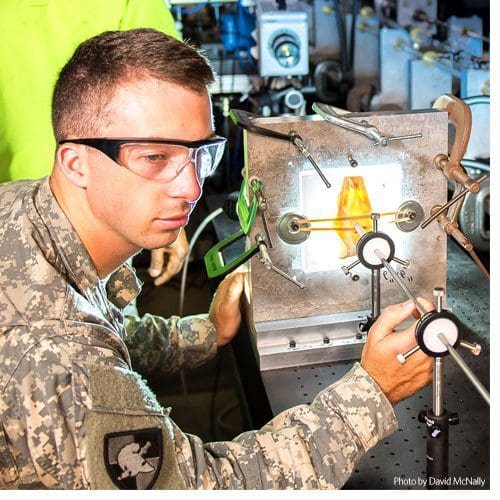Each of our institutions is individually remarkable. Collectively, we are extraordinary. Our universities and affiliates collaborate on important programs that serve our students and communities across the state.
The UNC System invests in a number of ongoing initiatives. The scope of these initiatives reflects the breadth of our impact, which reaches all levels of education in North Carolina and benefits students of every age.

Strengthening North Carolina’s Educational Pipeline
- UNC System Laboratory Schools: Six UNC System institutions partner directly with local educational agencies to operate innovative lab schools. These schools give teacher preparation programs an opportunity to utilize and promote innovative approaches that improve student outcomes. This work benefits the students in the classroom, and it gives the next generation of teachers and administrators hands-on experience in the field.
- Gaining Early Awareness and Readiness for Undergraduate Programs (GEAR UP): GEAR UP is a national college access initiative funded by the U.S. Department of Education. GEAR UP North Carolina supports students and families in the state’s most economically disadvantaged areas. The UNC System administers North Carolina’s statewide GEAR UP initiatives. The federal goal of the program is to significantly increase the number of students in disadvantaged communities who are prepared to enter and succeed in postsecondary education.
- myFutureNC: This statewide effort focuses on the goal of having 2 million North Carolinians with a postsecondary degree or credential by 2030. myFutureNC brings together North Carolina leaders in education, business, and government, and the UNC System is a partner in supporting this goal.
- Math Pathways: For many students, foundational math courses present stumbling blocks on the degree path. The Math Pathways project leverages the expertise of System faculty, staff, and administrators to remove these roadblocks, share information about best teaching practices, and support institutions’ work to improve graduation rates.

Promoting Access and Affordability in Higher Education
- NC Student Aid Study Group: The North Carolina Student Aid Study Group is a joint effort of the UNC and the North Carolina Community College Systems. Together, they have developed evidence-based reforms to enhance the effectiveness of state aid investments. This work focuses primarily on the UNC Need-based Grant, Community College Grant, and Education Lottery Scholarship.
- NC Promise: Through NC Promise, the state has significantly reduced student tuition cost to $500 per semester at three UNC System institutions: Elizabeth City State University, the University of North Carolina at Pembroke, and Western Carolina. Out-of-state students pay just $2,500 a semester for tuition.
- Fixed Tuition Program: Thanks to legislation passed in 2016 by the NC General Assembly, tuition rates at every UNC System institution will be fixed for eight consecutive semesters of continuous enrollment. This guarantee applies to all first-time, in-state bachelor’s degree-seeking freshmen.
- Military and Veterans Initiatives: The Board of Governors Committee on Military and Veterans Affairs spearheads a number of initiatives. Some of this work has focused on strengthening partnerships between the UNC System and branches of the military, including collaborative research efforts. Other initiatives have focused on helping military affiliated students and veterans transition into higher education. For example, the UNC System’s innovative Military Credit Equivalencies Database is establishing a comprehensive and uniform process for awarding credit for military training and experience across all 16 constituent universities and all 58 colleges in the North Carolina Community College System.
- Historically Minority-Serving Institutions: The UNC System is home to five historically black colleges and universities (HBCUs): Elizabeth City State University, Fayetteville State University, North Carolina A&T State University, North Carolina Central University, and Winston-Salem State University. It is also home to the state’s only designated historically American Indian university – The University of North Carolina at Pembroke. The Board of Governors formed the Committee on Historically Minority-Serving Institutions to study and assess these six institutions’ unique challenges and promising opportunities. The goal of the committee is to ensure these institutions’ future growth by promoting investments, opportunities, and awareness throughout the state.

Supporting Student Success
- Student Success: An annual conference brings together stakeholders from each of the UNC System’s 17 institutions. Attendees share strategies to enhance student ability to complete coursework, navigate degree paths efficiently, and graduate on-time.
- Student Success Innovation Lab: The Student Success Innovation Lab supports and amplifies promising student success strategies. The program funds evidence-based, cost-effective interventions with significant potential to improve retention, progress, and degree completion. Third-party researchers from within the UNC System rigorously assess their effectiveness. The results are then shared across the System and the higher education sector. As evidence of success accumulates, education leaders can utilize these strategies on a greater scale.
- Behavioral Health: Every year, the UNC System hosts the Behavioral Health Convening. This conference brings together representatives from institutions across the UNC System and the North Carolina Community College System. Participants evaluate the scope of student mental health issues and share strategies that support student mental health and wellness. Faculty, staff, and students from across the state’s higher education landscape gather for the Behavioral Health Convening. The conference reflect’s North Carolina’s statewide effort to nurture a healthy and resilient student body.